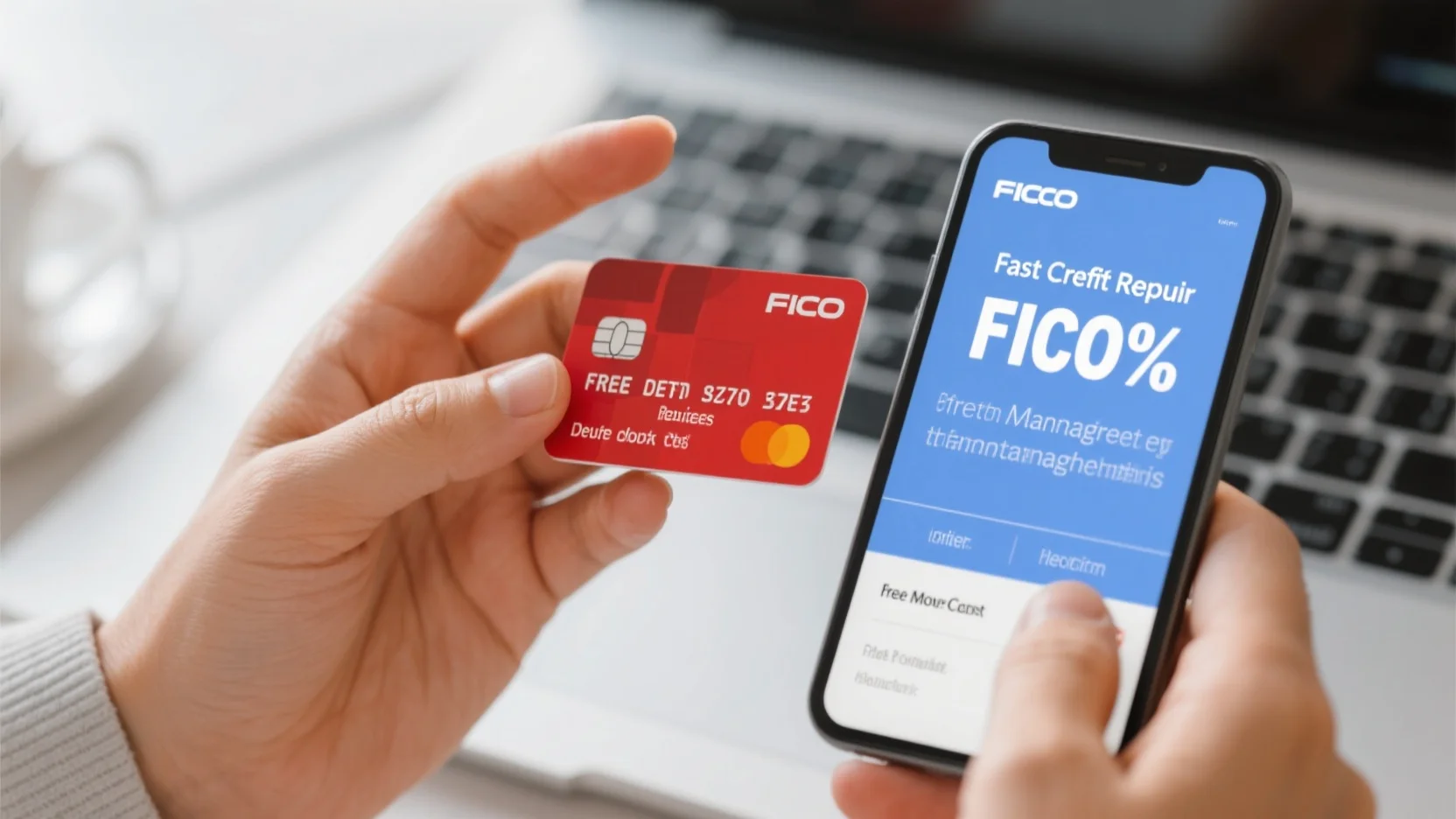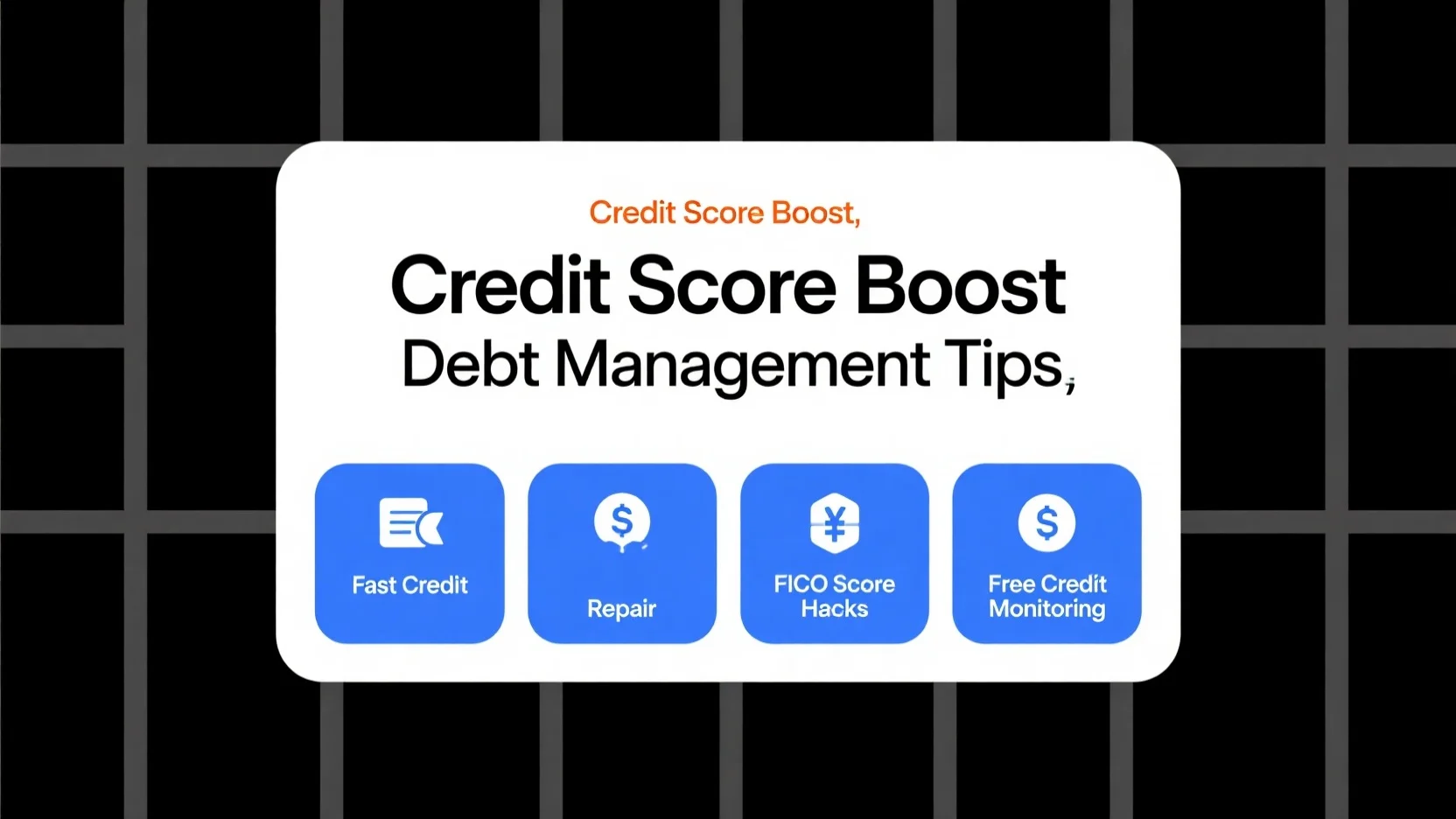Image Source: unsplash
Your credit score holds the key to unlocking better financial opportunities. Whether you’re applying for a loan or securing a lower interest rate, a higher score gives you an edge. Did you know that only 21.9% of Americans have an exceptional credit score? Check out the table below to see where most people stand:
| Credit Score Range | Percentage of Consumers |
|---|---|
| Poor (300-579) | 12.6% |
| Fair (580-669) | 15.8% |
| Good (670-739) | 21.6% |
| Very Good (740-799) | 28.1% |
| Exceptional (800-850) | 21.9% |
Improving your score doesn’t have to take years. These 7 proven ways to improve your credit score fast can help you see results quickly. Start today and stay consistent to achieve your financial goals.
Key Takeaways
- Look at your credit report often to find mistakes. Fixing errors can raise your credit score fast.
- Lower your credit card balances to keep usage under 30%. This proves to lenders you handle credit responsibly.
- Use automatic payments so bills are always paid on time. Paying on time builds a good payment history, which is very important.
Check Your Credit Report for Errors
Why Reviewing Your Credit Report Matters
Your credit report affects your credit score. Mistakes on it can lower your score and hurt your finances. Almost half of people who check their reports find errors. Worse, one in five finds mistakes that harm their credit score. These errors can cause higher interest rates or loan rejections.
Common mistakes include wrong accounts, incorrect payments, or old personal details. For instance, accounts you didn’t open might show up, hinting at identity theft. Typos, like a misspelled name or wrong Social Security Number, can also create problems. Checking your report often helps you spot and fix these issues early.

Steps to Dispute Errors and Fix Your Credit
Fixing credit report mistakes is simpler than you think. First, get a free credit report from Experian, Equifax, and TransUnion. Look for errors like wrong balances or unknown accounts.
If you find a mistake, act fast. Follow these steps:
- Gather evidence: Collect proof like bank statements or receipts.
- Contact the credit bureau: Dispute the error online, by mail, or phone. Explain clearly and include your proof.
- Notify the creditor: Tell the company that reported the wrong info. They might need to update their records.
- Follow up: Credit bureaus must check disputes in 30 days. Make sure they fix the issue.
Fixing errors quickly can boost your credit score and protect your finances. This is one of the 7 Proven Ways to Improve Your Credit Score Fast. Don’t wait—check your report now!
Pay Down Credit Card Balances
Understanding Credit Utilization
Your credit utilization ratio is important for your credit score. It shows how much credit you use compared to your limit. For example, if your limit is $10,000 and you use $3,000, your rate is 30%. Experts say to keep this below 30%. Staying under 10% is even better.
Why is this important? Credit utilization makes up 30% of your FICO® Score. A high rate tells lenders you rely too much on credit. This can hurt your score. Paying off balances lowers this rate. It shows lenders you handle credit well. This simple step can quickly improve your score.
Strategies to Lower Your Utilization Ratio
Lowering your credit utilization doesn’t have to be hard. Try these tips:
- Pay more than the minimum: Paying only the minimum keeps your debt high. Pay as much as you can each month to lower it faster.
- Focus on high-interest cards first: Pay off cards with the highest interest rates first. This saves money and reduces your debt.
- Think about debt consolidation: Combine debts into one loan with a lower interest rate. This makes payments easier and helps you pay off debt faster.
- Use balance transfers: Move high-interest debt to a card with a lower rate. This lowers costs and helps you pay off debt quicker.
Using these tips will lower your credit utilization and improve your payment history. Payment history is 35% of your FICO® Score. Together, these steps can boost your score. Paying down credit card balances is one of the 7 Proven Ways to Improve Your Credit Score Fast. Start now to see results!
Set Up Automatic Payments
Benefits of On-Time Payments
Paying your bills on time is one of the easiest ways to improve your credit score. Payment history makes up 35% of your FICO® Score, so even one late payment can hurt your score. Setting up automatic payments ensures you never miss a due date.
When you pay on time, lenders see you as reliable. This builds trust and improves your creditworthiness. On-time payments also save you from late fees, which can add up quickly. Over time, consistent payments can help you qualify for better interest rates and loan terms.
Tip: Even if you can’t pay the full balance, paying the minimum amount on time protects your credit score.
How to Automate Payments Easily
Setting up automatic payments is simple and takes just a few minutes. Start by logging into your online banking or credit card account. Look for the "AutoPay" or "Recurring Payments" option. Choose the amount you want to pay—either the full balance, minimum payment, or a custom amount. Then, select the payment date and link your bank account.
If you have multiple accounts, repeat this process for each one. To avoid overdrafts, make sure your bank account has enough funds before the payment date.
Note: Review your statements regularly to ensure the correct amounts are being paid.
Automating payments is a stress-free way to stay on top of your bills. It’s one of the 7 Proven Ways to Improve Your Credit Score Fast. Start today and watch your score improve!
Request a Credit Limit Increase
How a Higher Limit Can Improve Your Score
Getting a higher credit limit can help your credit score. When your limit increases but spending stays the same, your credit utilization ratio drops. For example, if your limit goes from $5,000 to $10,000 and you use $2,000, your ratio falls from 40% to 20%. A lower ratio shows lenders you handle credit well, which can raise your score.
A bigger limit also gives you more spending room. You can cover unexpected costs without maxing out your cards. This helps avoid the harm of high balances on your credit report. But, it’s important to use the extra credit wisely to see these benefits.
Tips for Requesting and Using the Increase Wisely
Before asking for a credit limit increase, take steps to protect your score. Follow these tips to make it easier and helpful:
- Ask your creditor first: Check if they’ll do a hard or soft inquiry. Hard inquiries can lower your score a bit, so try to avoid them.
- Pick the right time: Don’t ask for an increase if you’ve opened new accounts or had many hard inquiries recently. Too many can make you seem risky.
- Control your spending: A higher limit doesn’t mean you should spend more. Stick to your budget and use the extra credit only when needed.
Tip: If your total credit limit is too high compared to your income, it could hurt your chances of getting loans later. Check your limits often and adjust them to fit your goals.
Requesting a credit limit increase is one of the 7 Proven Ways to Improve Your Credit Score Fast. Use these tips wisely and watch your score grow!
Become an Authorized User
How Being an Authorized User Works
Joining someone else’s credit card as an authorized user is simple. It’s a quick way to help your credit score. When added, their good payment history and low balances can show on your report. This might raise your score fast, especially if the account is old and well-managed.
You don’t need to use the card or pay bills. The main account holder handles the debt. You just benefit from their good credit habits. This is great for beginners or those fixing past credit issues.
Tip: Check if the credit card company reports authorized users to credit bureaus. Some don’t, so confirm first.
Choosing the Right Account for Maximum Benefit
Not all accounts will help your score equally. Pick one with a strong history of on-time payments. It should also have low balances and a high credit limit. These things can improve your credit score.
Ask a trusted family member or friend to add you. They should have great credit habits and use their account wisely. Stay away from accounts with late payments or high balances. These could hurt your score instead of helping.
Becoming an authorized user is one of the 7 Proven Ways to Improve Your Credit Score Fast. Try it today and see your score improve!
Pay Off Small Balances on Credit Cards
Why Small Balances Can Lower Your Score
Having small balances on many credit cards may seem fine. But it can actually hurt your credit score. Credit scoring systems don’t like balances spread across several cards. Even small amounts can show lenders you depend on too much credit. This might make you seem less financially secure.
Also, small balances can raise your total credit utilization. If you owe money on many cards, the combined amount could go over 30%. This can lower your score and make it harder to get better loans or rates.
Paying off these small balances can make managing money easier. It also helps improve your credit score. This is one of the 7 Proven Ways to Improve Your Credit Score Fast.
Easy Ways to Pay Off Small Balances
Getting rid of small balances doesn’t have to be hard. Try these tips to pay them off faster:
- Snowball Method: Pay off the smallest balance first. This gives quick results and keeps you motivated.
- Automate Payments: Set up automatic payments to avoid missing due dates. This prevents late fees and protects your credit score.
- Earn Extra Money: Find ways to make more cash. Sell items you don’t need or take a side job to pay off debt.
- Combine Debts: Merge all balances into one loan. This makes payments simpler and might lower interest rates.
- Ask for Help: Talk to a financial expert for advice on managing debt.
By paying off small balances, you’ll lower your credit utilization. It also shows lenders you can handle credit well. Start now to see your score improve!
Avoid Opening New Credit Accounts
How New Credit Inquiries Impact Your Score
Opening new credit accounts can hurt your credit score. When you apply, lenders do a hard inquiry to check your history. Hard inquiries make up 10% of your FICO score. One inquiry has little effect, but many in a short time can look risky.
Hard inquiries may lower your score for a while. Lenders might think frequent applications mean financial trouble. Though less important than payment history or credit utilization, avoiding extra inquiries helps your score.
Soft inquiries, like checking your own report, don’t affect your score. Limit hard inquiries to keep your credit profile strong.
Tip: If you’re comparing loans, apply within a short time. Credit scoring often groups similar inquiries together, reducing their impact.
Alternatives to Opening New Accounts
Instead of opening new accounts, try these ideas to improve your finances:
- Use current credit wisely: Pay down balances and keep your usage low. This helps your score more than opening new accounts.
- Ask for a credit limit increase: Request a higher limit from your current creditors. This lowers your usage without adding new inquiries.
- Become an authorized user: Join a trusted person’s account to benefit from their good credit habits. This boosts your score without applying for new credit.
- Save money: Build savings for emergencies. This reduces your need for credit and improves your financial health.
Avoiding new accounts is one of the 7 Proven Ways to Improve Your Credit Score Fast. Focus on these smarter options to protect your score and reach your goals sooner.
Boosting your credit score doesn’t have to be hard. Here’s a simple summary of seven ways to improve it fast:
- Pay bills on time to prove you’re trustworthy.
- Keep credit usage under 30% for a better score.
- Keep old accounts open to lengthen your credit history.
- Avoid extra credit applications to reduce hard checks.
- Use a secured credit card wisely to fix or build credit.
- Check your credit score often to stay updated.
- Get help from credit counselors for expert advice.
Being consistent matters most. Small steps can lead to big changes. Start these tips now and take charge of your money future!
FAQ
What’s the quickest way to raise my credit score?
Pay off your credit card balances and use automatic payments. This lowers your credit usage and ensures bills are paid on time, improving your score fast.
Tip: Try to keep your balances under 30% of your credit limit for the best results.
How many times should I check my credit report?
Look at your credit report at least once every year. Checking often helps you find mistakes and track your progress in boosting your credit score.
Will being an authorized user always help my credit score?
Not every time. It depends on the account’s payment history. Pick an account with timely payments and low balances for better chances of improving your credit score.
Note: Make sure the credit card company reports authorized users to credit bureaus.




